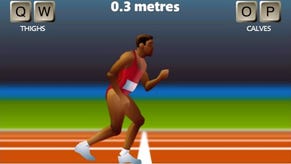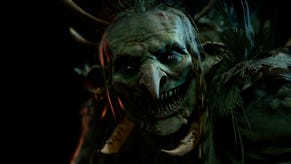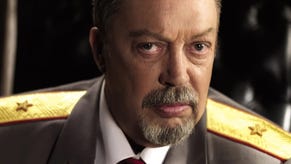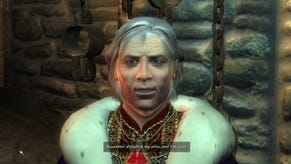The Elder Scrolls IV: Oblivion
Good grief.
The overwhelming thing about Oblivion isn't knowing where to start, but when to stop. It's an adventure game in the purest sense of the word in its effortless capacity to give the player a seemingly infinite wealth of possibilities - full of intrigue, excitement, risk, reward and this continual sense of the unknown.
Much of this was true of Morrowind, of course, but technically, things have moved on to a breathtaking extent. Stepping out of the game's introductory (and obligatory) dungeon, nothing can prepare you for the genuine sense of awe of entering Tamriel's outside world. The beautiful, sweeping vistas are, without question, the most beautiful game settings achieved to date. Whichever direction you cast your gaze, there are marvellous sights to behold at every turn; lush grass sways over rolling hills, deer bound through dappled woodland, once-proud temples lie crumbling in ruins, while towns of immense, stunning architectural majesty stand proud in the distance, beckoning you to explore their secrets.
Your first dilemma is whether to engage with the plot or not, and whether you stride purposefully towards that red triangle on your compass is your choice. You see, the death of the 87 year-old Emperor of Tamriel and his three sons presents something of a problem for this idyllic land. Without an heir to the throne, several hellish rifts or 'gates' to Oblivion are open, and demons are pouring out of them. As you might expect, they're doing a pretty fine job of doing their evil bidding and laying waste to everything in their path - and for reasons not fully apparent, you've been entrusted with the task of putting a stop to all this.
Losing my heir
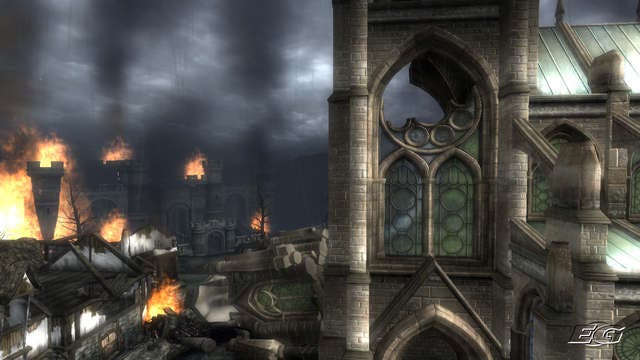
Luckily, a secret lost heir to the throne is out there, and it's up to you whether you track him down, close the first gate and usher him to the safety of the Blades hideout in the mountains, or simply carry on with your own agenda, whatever that may be.
Just as it should be, Bethesda lets you chart your own course right from the word go, with a level of character customisation that even EA would be proud of. True to RPG tradition, you select from one of the ten races (Argonian, Breton, Dark Elf, High Elf, Imperial, Khajit, Nord, Orc, Redguard, and Wood Elf) and can then go to town on crafting the exact look of your character. By some freak of slider bar chance, we made ours look exactly like Prince, albeit with blue skin and a greater penchant for eyeliner. Obviously a sign of the times [Fired! - Ed] [But I am the Ed - Ed].
With a further choice over your Birthsign (essentially your special ability) the game will determine how your eight different attributes stack up (in terms of Strength, Intelligence, Willpower, Agility, Speed, Endurance, Personality and Luck) which in turn also have a bearing on your combat, stealth and magic skills. Each of these are further subdivided into a further seven secondary skills (such as block, athletics, restoration, alchemy, sneak and speechcraft), offering an extraordinary number of permutations over how your character ends up.
As complicated as it all sounds, though, Oblivion is thoughtfully designed to keep these layers tucked away unobtrusively. Unlike the RPGs of the past, simply playing the game a specific way influences the stats leaving you to get on with simply being immersed and entertained, rather than bogged down with tedious levelling up and micromanagement. The thing that ultimately dictates how your character ends up is simply the way that you play the game, and it all works in a logical coherent sense.
Alchemholic
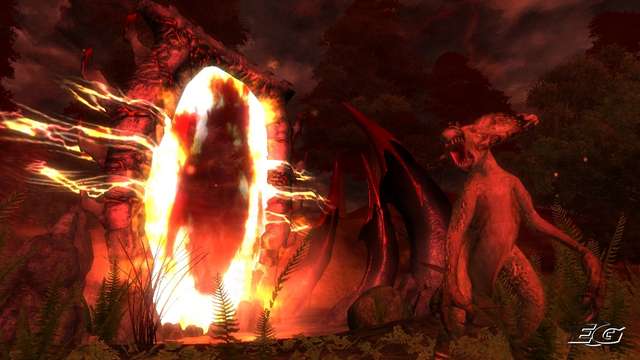
For example, if you're the type of player that prefers alchemy, and want to learn and create spells, then - naturally - the game works on the principle of practice makes perfect. It sounds silly, but if you don't mind making yourself look like a tit, then you can jump your way through the game and become a better acrobat; sneak around and you'll be a better thief; block your enemies and strike back with a mace and you'll have better block abilities as well as improved blunt weapon skills. Sometimes you might realise the only choice is to chat your way out of situations with persuasion or simply decide to swing your weapon with righteous anger; Oblivion reflects that within your character's abilities, and, naturally, with how the world reacts to you, too.
Perform a good deed, and word spreads as to the kind of person you are. Some people might react to you more favourably and comment on your deeds, or might hold back information until they can trust you. Admittedly, getting them to do this comes via the slightly pointless Persuasion mini-game, in which you have to rotate a wheel with Joke, Coerce, Admire, and Boast categories, and try to work out the emphasis that most aligns with what they appreciate. After a while you work out a preferred order and can increase how much they like you to the point where they might tell you things you need to know - or you might get to sell all your goods at a higher price. It's a slightly out-of-kilter mechanic, but we kind of liked it anyway.
But sod righteousness. Most of us (at some time or other) just want to see what kind of mayhem we can create, and Oblivion's absolutely fantastic in this respect. Killing people's not generally considered the best way to make friends and influence people, nor is robbing them, but there's a place for every approach. Your normal gaming instinct, at first, is just to kill the odd rabid wolf or bandit, and respect everyone else, but eventually you'll probably get a little frustrated at how rubbish your weapons and armour are, and want to find out ways of making some cash.
Deadly shadows
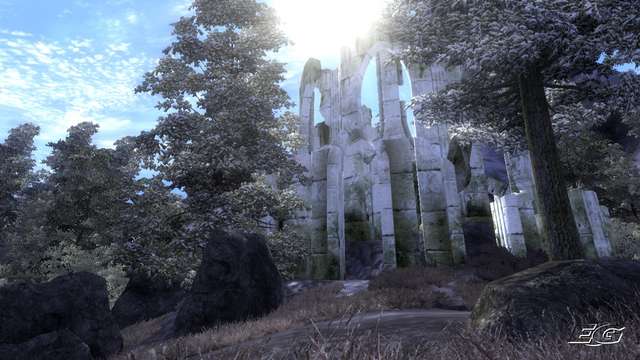
It's all very well raiding the odd abandoned cave or dungeon, but that only seems to get you so far, and even nobly following the main quest isn't the most financially beneficial thing in the world. In time, you'll want to test out those sneaking abilities you learned right at the start and begin pickpocketing people while they sleep in their beds. You'll fill your pockets with flawless diamonds, filch all their superior apparel and leg it out of the door in the dead of night... and then get caught and chucked in prison.
And although it might seem like this pinching lark isn't for you, at some point you might find yourself being passed a note from a stranger offering you the chance to join the thieves' guild. Before you know it, you go from being an upstanding, law abiding hero to stealing from the rich to give to the poor - a righteous law-breaking Robin Hood. Elsewhere, you might find yourself joining one of the other guilds - such as the fighter's guild or the magician's - for proving your worth in similar ways.
The brilliant thing about all of this, is that it's all just mindless side-questing that's not even remotely going to save the world. Sod the Emperor - I've got a joint to case.
Yet unlike the most famous sandbox game of them all - Grand Theft Auto - these quests all feel purposeful; like they matter, and that they may have a true consequence somewhere down the line. They're not just idle padding; each and every one of these incidental missions feels alive and full of purpose - and you never quite have a handle on where they're going to lead you, or who you'll meet as a result. Like we said right at the start, it's a true adventure, and it's quite likely no two will ever be quite the same, giving gamers the perfect opportunity to regale and embellish their stories in their own unique way. Like the introductory blurb says, the game really does seem to offer unlimited possibilities.


